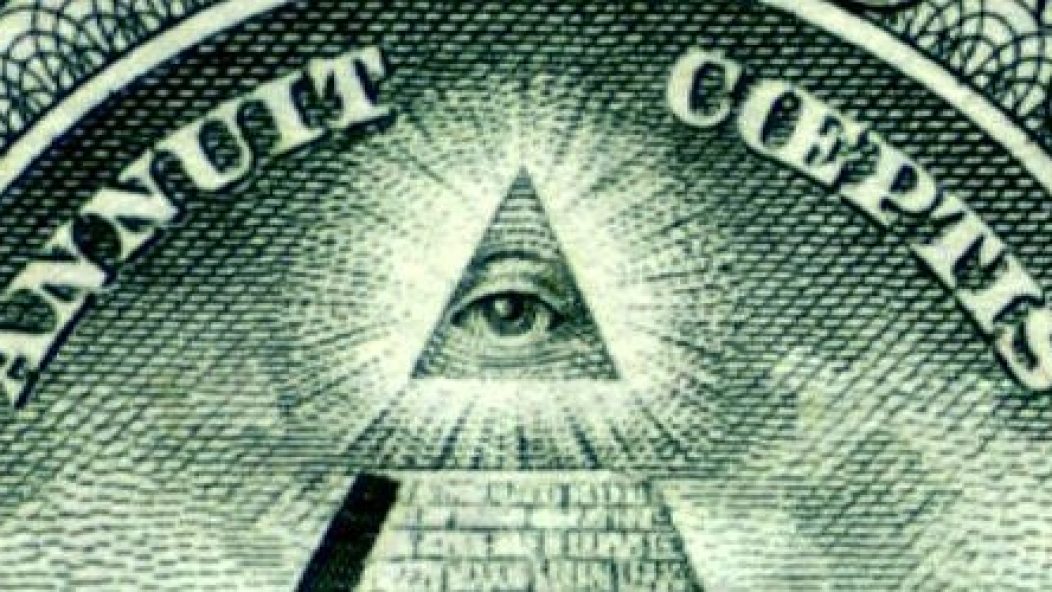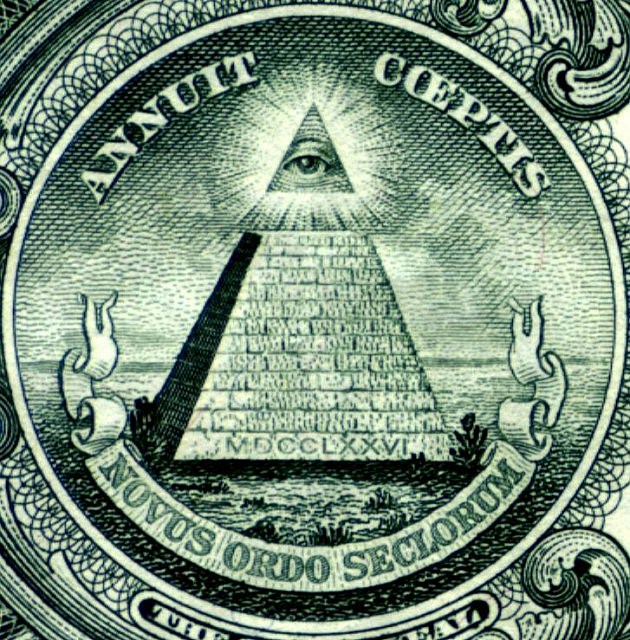
Why do bands get popular?

…
This is my last post as the editor of Invisible Oranges.
There are a number of boring personal reasons that I’m stepping down, but without going into detail, the chief one is that I’m drastically overbooked. It’s an amicable split, though, and I plan to contribute to the site in the future. Ian Chainey, whose work you surely know from his indispensable Upcoming Metal Releases posts, will be assuming the role of editor.
Running this site was an incredible opportunity; I’m deeply grateful to both the IO staff and to everyone at BrooklynVegan for giving me the opportunity to work with them in this capacity. I’m even more grateful to you, the readers. Thank you. It’s been a blast.
…
…
Early last year, the Canadian music blog Exclaim.ca ran the above video interview with Colin Marston. Most of it is only interesting if you’re a Behold The Arctopus fan, but the bit that starts at about the 7:18 mark is gold:
“It’s almost pointless to try to go into a career as a band, because it’s so impossible to earn enough money to make a decent living. You have to be a huge band to do that. It’s like 0.1% of all the bands out there. And it doesn’t really have anything to do with whether you’re good or not. It’s sort of random. I mean, yeah, if you want to be in the professional world, you have to play the professional game, sure. But plenty of bands do that, and only a couple of them get somehow picked by the Illuminati to become popular, successful bands that can actually support themselves off of it.”
You can tell that Colin is joking about the “Illuminati” bit at the end, but I’m starting to wonder whether it’s really such a poor explanation for why some bands get popular and others don’t. I’ve been writing about music in one form or another for ten years. My understanding of this process may have actually dimmed over that period, even as my knowledge of the industry grew.
…
Of course, ‘popular’ is a relative concept. By my lights, Gorguts — of which Marston is now a member — are a fairly popular band. They have about 160,000 Facebook likes. That sounds like a lot of people. But compared to an up-and-coming starlet like Lorde, who has a little under 4,000,000 FB likes, it’s chump change. And relative to a truly established mainstream artist like Beyoncé, who has almost 60,000,000 FB likes, it’s genuinely insignificant. (The fact that Facebook likes have become a broadly accepted measure of popularity says a great deal about how slippery that concept has become.)
Still, the rhyme and reason behind even small-potatoes popularity of the sort that underground metal bands achieve often eludes me. This drives me a little crazy. Like most humans, I prefer to feel that I understand the world around me, and I’m especially interested in understanding the mechanics of the little subcultural corner that I inhabit. But those mechanics are driven by the fickle and opaque engines of human preferences and relationships, so they often give me the slip.
That’s partially my fault. As with most casual nerds who become professionalized nerds, my own preferences have grown both preposterously specific and hilariously far from the average person’s over the years. For me, Thantifaxath sound like accessible crowd-pleasers; Jute Gyte register as “pretty catchy, for what it is.” By contrast, Behemoth’s live show looks impossibly opulent and expensive. Some music writers hone their ability to predict the whims of the masses over the years, but I’m not one of them.
Still, I’m hardly alone among my colleagues in this respect. Rock music has produced critically-adored commercial flops since the beginning, which suggests that rock critics have always been bad at guessing which bands will blow up and which ones won’t. (Or at what time a band will blow up; if Alex Chilton were alive, he could attest to the frustrations of delayed adulation.) But because we’re human, we — and bands, and labels, and fans, and anyone who has a recreational or professional interest in music — try to explain the maddening, inexplicable process that is popularity selection.
…
You can come up with endless plausible explanations for why certain bands do well and others don’t, of course. I mentally sort these explanations into one of three categories:
1. Band-positive explanations. These explanations attribute success to the band’s laudable qualities. This category includes the most basic, artistic-ability-oriented reasons for success (“their music rules”) as well as some less-glamorous ones (“they’ve devised a canny PR strategy”). Here are some common examples:
Bands get popular because they play totally sick jams.
Bands get popular because they’re genuinely original.
Bands get popular because they play catchy tunes, and people love catchy tunes.
Bands get popular because they work hard and tour a lot.
Such qualities certainly help your chances of getting popular, but they are neither necessary nor sufficient if you want your band to blow up. An audience of underground-minded metalheads should readily agree that plenty of “good,” “catchy,” and “hard-working” bands fail to achieve commercial or critical success, while plenty of shitty, lazy, tuneless bands garner both. I needn’t name names here; you can surely come up with examples on your own. Conversely, I have trouble coming up with an example of a band who got popular strictly because their music was good, without assistance from any secondary factor.
…
2. Band-neutral explanations. These explanations point to exogenous factors — the mood of the listening public, the vagaries of fate, and so forth — to explain why bands get popular. For instance:
Bands get popular because they play a style that happens to become fashionable early in their career.
Bands get popular because they capture the zeitgeist.
Bands get popular because the right tastemaker happens to like them.
Bands get popular because they’re in the right place at the right time.
This type of explanation has a degree of credibility — the world is chaotic, and consumer preferences shift like sand dunes, so it’d make sense if bands sometimes inadvertently bumbled into popularity. And some of them do, to be sure. Kurt Cobain was famously fond of claiming victimhood at the hands of such fortune.
But in his case, and in most others, I suspect that luck and timing don’t tell the whole story. Iron Maiden may not have become as popular as they have if they didn’t get their start at exactly the right time, but they also wouldn’t have become as popular if they weren’t Iron fucking Maiden. They’re a good example of a band that have benefited from both band-positive and band-neutral mechanisms.
I also like to think that this sort of explanation doesn’t give the bands themselves enough credit. It may be folly to think that artistic and personal choices play a significant role in a musician’s destiny, but the alternative possibility — that it doesn’t really matter what you do or don’t do — is thoroughly bleak.
…
3. Band-negative explanations. These explanations all boil down to some version of “they cheated” — they attribute success either to cynical capitalization on the public’s instincts, or to some manner of outright reprehensible behavior on the band’s part. You have probably pointed to at least one of these to explain the popularity of a band you hate:
Bands get popular because they weasel their way into industry connections.
Bands get popular because they have a good gimmick.
Bands get popular because they look cool / have a hot frontperson.
Bands get popular because they cynically follow trends.
Bands get popular because they have a big label pushing them hard.
Bands sleep their way to the top.
These explanations are all thoroughly cynical, and it embarrasses me to think of how often I’ve cited all of them to disparage the success of this or that group I dislike. Sadly, there is substantial reason to lend some of them credence. Most of you can come up with anecdotal examples of mediocre bands doing well for reasons that involve dirty dealings in back rooms or flashy superficiality, just as you can come up with examples of great bands who never gain traction.
Worse yet, there’s some disturbing clinical evidence to suggest that these tactics can work even for fairly shitty bands. Popularity is not strongly correlated with quality. A 2006 Princeton study into the confusing world of cultural free markets begins with this alarming abstract:
“Hit songs, books, and movies are many times more successful than average, suggesting that “the best” alternatives are qualitatively different from “the rest”; yet experts routinely fail to predict which products will succeed. We investigated this paradox experimentally, by creating an artificial “music market” in which 14,341 participants downloaded previously unknown songs either with or without knowledge of previous participants’ choices. Increasing the strength of social influence increased both inequality and unpredictability of success. Success was also only partly determined by quality: The best songs rarely did poorly, and the worst rarely did well, but any other result was possible.”
So there’s at least limited scientific backing for the notion that you can cheat your way to the top of the charts, so long as your music achieves a baseline level of acceptability. A follow-up study came to an even more depressing conclusion:
“We found that most songs experienced self-fulfilling prophecies, in which perceived—but initially false—popularity became real over time.”
So, in short, your band really will get popular if the cultural Illuminati go around telling everyone that what you’re doing is cool, even if your music is pretty meh. Still, even band-negative mechanisms can fail, as countless major-label washouts can attest. There’s no sure victory for bands; even bad guys finish last sometimes.
(Credit where it’s due — I originally came across both of the above studies in the same Gwern Branwen essay that I mentioned in this post. It’ll take some time to read, but it’s very much worthwhile if you’re at all interested in the market dynamics of the contemporary pop culture industry.)
…
Realistically, some combination of the above explanations is at play in any given case of band success. You could probably even work up some kind of equation that takes all of them into account if you wanted to predict the likelihood that a band will achieve commercial success. Major labels don’t currently employ quant-trader types who could perform this kind of calculation, but given the commercial failure rate of major label signees, perhaps they should consider doing so. Even the most hard-bitten Sony-BMG A&R guy is wrong on this subject most of the time, much to the detriment of his employers’ profit margins.
But that’s a good thing for the rest of us. In fact, I actively want bean-counter types to stay away from this subject. If it were really possible to reduce this question to a formula, popular music — and yes, that includes underground metal — would become as boring and deterministic as the pork-futures market.
That collective tastes are so deeply unpredictable reflects the most beautiful parts of human mental life: the ability to surprise yourself, the capacity to learn new things, the desire to seek out experiences that you have no vocabulary to describe. Without these mysterious factors, our musical lives would carry no poetry; we’d be little more than rats pushing the ‘pleasure’ lever in a psychologist’s experiment every time we bought a new album. It would suck, and we’d move on. But this unpredictability, the knowledge that the next album you buy could turn out to be your favorite, and everyone else’s, too — that’s what keeps us coming back.
…










